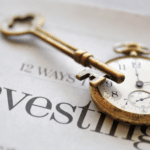Warren Buffett’s Berkshire Hathaway achieved a significant milestone on Wednesday by reaching a market value of $1 trillion, becoming the first non-tech company in the U.S. to reach this landmark. This accomplishment reflects the enduring confidence in Buffett’s leadership and the diversified portfolio of the conglomerate. Berkshire’s stock performance this year has notably outpaced the S&P 500 index, highlighting its substantial growth and stability.
Berkshire Hathaway now stands alongside six other giants—Apple (NASDAQ:AAPL), Nvidia, Microsoft (NASDAQ:MSFT), Alphabet, Amazon, and Meta—in the exclusive $1 trillion market cap club. Despite the recent reduction in its stake in Apple, it remains Berkshire’s largest holding. Historically, Berkshire Hathaway’s steady growth and resilience have positioned it as a market leader, showcasing consistent long-term performance. Compared to previous years, Berkshire’s diversified portfolio continues to yield substantial profits, further cementing its status in the financial world.
Berkshire Hathaway’s Diversified Portfolio
The conglomerate’s extensive portfolio spans various sectors, including energy, insurance, manufacturing, retail, and services, collectively generating $22.8 billion in profit during the first half of the current year. Businesses under its control include Geico, the BNSF railroad, Brooks running shoes, Dairy Queen, Ginsu knives, and the World Book encyclopedia, among others.
Berkshire Hathaway has outpaced the benchmark S&P 500 index so far this year, as the company’s stock has increased over 28% compared to the index’s 18.5% rise.
Strategic Investment Moves
Berkshire’s latest strategic moves include reducing its stake in Apple by half while maintaining it as the largest stock holding with 400 million shares valued at $84.2 billion as of June 30. Similarly, Berkshire reduced its holdings in Bank of America, but it remains one of its significant investments. The conglomerate also holds a vast portfolio of stock and bond investments, underscoring its diversified approach.
Buffett’s company has accumulated more short-term U.S. Treasury bills than the Federal Reserve, with $234 billion in holdings, surpassing the Fed’s $195 billion. This strategy reflects Berkshire’s cautious yet opportunistic investment approach, aiming to balance risk and reward effectively. Despite significant charitable donations, Buffett retains over 14% of Berkshire Hathaway, aligning his interests with those of the shareholders.
Berkshire Hathaway’s remarkable journey to a $1 trillion market value highlights its resilience and adaptability in the ever-evolving market landscape. The company’s diversified portfolio and strategic investments have consistently driven substantial growth, setting it apart from other conglomerates. As it moves forward, Berkshire’s focus on value and stability will likely continue to yield positive results, reinforcing its position as a market leader.










